Recording | The UPC: How to use it, not use it and some problems
17 November 2022, 1:45 pm–7:00 pm

A half-day conference in-person and online
Event Information
Open to
- All
Organiser
-
UCL Laws Events
Location
-
Offices of Taylor Wessing LLP5 New Street SquareLondonEC4A 3TW
About the event
The Unitary Patent (UP) and Unified Patent Court (UPC) will become a reality in April 2023. It will have a profound and lasting impact on the European patent landscape. Described by EPO President, António Campinos, as ‘the most important change in the European patent system since the EPO took up its operations in 1977’, it will inevitably bring about a significant change to the patent strategies of businesses and patent advisors alike.
Join us at this UCL Institute of Brand and Innovation Law (IBIL) event, hosted by Taylor Wessing, and engage with our panel of experts. Leading practitioners will identify and discuss the key practical and strategic issues concerning the UPC, and you will also have the opportunity to raise you own questions and concerns. For instance, the new system will affect all existing European patents. These will automatically fall under the UPC’s jurisdiction unless formal steps are taken to ‘opt out’. But when should patentees opt out, how is this done, and what if you change your mind? Equally, when does it make sense to convert traditional EP rights into a UP? Business will also need to be aware of the possibility of being sued for patent infringement in the UPC, rather than in a national court. Practitioners will have to learn how to use the UPC’s Case Management System – the demonstration of how to use it will be invaluable.
The event culminates with the Judges’ Panel during which our distinguished line up of patent judges provide their own opinions on the strengths and weaknesses of the new system. The problem of conflict of interest of part-time judges will form a significant part of the discussion.
The speakers include:
- Tobias Bremi (Swiss Federal Patent Court)
- Patricia Cappuyns (Taylor Wessing)
- Cristina Carpani (Net Service SpA)
- Simon Cohen (Taylor Wessing)
- Amanda Ebbutt (Taylor Wessing)
- Sir Christopher Floyd (UCL)
- Prof. Sir Robin Jacob (UCL)
- Wim Maas (Taylor Wessing)
- Prof. Peter Meier-Beck (UCL / University of Düsseldorf)
- Jan Phillip Rektorschek (Taylor Wessing)
- Gwilym Roberts (CIPA)
- Nigel Stoate (Taylor Wessing)
This is conference is being run as a hybrid event. As the number of in-person tickets are limited, early booking is strongly recommended.
UCL IBIL thanks Taylor Wessing LLP for hosting this event

- The Programme and Recordings
13:45
Registration
14:15
Welcome and Update on UPC Progress
Professor Sir Robin Jacob (UCL IBIL)The UPC is the first court built around electronics and is also the first purpose-built court for patents with most national systems operating with adjustments for the needs of patent litigation. It remains to be seen if it will work but the focus of this conference is on how best to use the UPC and what potential issues might arise.
14:30
Opting Out:
How to opt and withdraw opt out. Converting an EP to a UP and its effect
Gwilym RobertsOpting out
There hasn't been a flood of requests to use the UPC process, with clients and practitioners looking to each other on the issue of opting out, but there are rumours that some big players are opting in to the UPC system. The pharma industry is opting out of the UPC due to concerns over central revocation, but others are backing their patents if they have successfully defended attacks on those patents previously. There is no opt out fee so many clients are opting out initially with the view to spending money at the filing stages and then opting in after the patent grants and when the playing field is more developed.
Strategic issues associated with opt out
Amanda EbbuttLitigation strategy
Opting out narrows the forum options for litigating patent to just the national courts and while opting out can be withdrawn, it cannot be withdrawn if national litigation has commenced. There are several points that should be considered prior to opting out:
Buying time: opting out gives the patentee time to decide if the UPC is the best option, this should not be seen as a lack of confidence in the process, but as a 'not yet' stance. Assessment of patent strength: opting out avoids the risk of central revocation and may be preferable for crown jewel patents. Current geographic coverage: the UPC is good if patents only cover a small geography, but since the UPC costs are front-loaded it may not the best option for patents with large geographical coverage. Patent family coverage: there is an ability to opt out only some patents within a particular family and leave others within the UPC system. Immediate business plans: the patentee must consider if the business can tolerate the levels of risk involved in the UPC system and the possibility of central revocation.
15:00
Case Management System - A demonstration
Cristina Carpani (Net Service S.p.A- Since the court is the first fully digital court, a new case management system (CMS) has been specifically developed with a user-centric focus to provide a core platform and centralised IT governance. The CMS communicates via the web and mobile devices to external users, as well as communicating to external information systems.
- The system was designed with four central pillars: not to interfere with users; to work on a case-based workflow principle; for all documents to be stored and retrieved within the CMS and never sent outside of the system; and that data will only to be collected for statistical purposes.
- A demonstration of the CMS workflow system and an opt out application workstream was provided as part of this session.
15:40
Practice and Strategy Practitioners’ Q&A
Moderator: Paul England (Taylor Wessing)
- Patricia Cappuyns
- Jan Philip Rektorschek- The UPC will be a one-stop shop for injunction decisions but the costs are quite high so this may prevent midsize companies litigating in the UPC.
- Clients are showing some hesitancy, particularly around central enforcement, but if they are confident about validity and infringement of their patents then making it a UP is a good option.
- Obtaining a preliminary injunction (PI) will involve meeting a high standard of rigour as is the case in other jurisdiction but the PI will be broader in its effect.
16:20
BREAK
16:40
Part-time Judges & Conflicts of Interest
Tobias Bremi (Swiss Federal Patent Court)
Online presentation- While the system of having technically qualified judges is good, there is the potential to have conflicts with judges who also work in patent law firms. These potential conflicts could block firms from taking on clients before, during or after a case.
- The court must be independent and impartial, but it is not necessary to show real bias, a reasonable appearance of bias is sufficient to bring about a conflict of interest.
- There was further exemplary discussion of Swiss conflict of interest case law which highlighted how conflicts could arise.
17:20
Judges Panel and Q&A
Moderator: Simon Cohen (Taylor Wessing)
Tobias Bremi
Sir Robin Jacob
Professor Peter Meier Beck
Sir Christopher Floyd- In relation to party- or court-appointed experts, the court has the power to direct differently depending on the size of the case.
- In the judge's opinion there will not be much parallel litigation and the UPC will significantly replace trans-European litigation to produce less of a patchwork of decisions on substantially the same issue.
- In terms of possible arbitration and mediation, the UPC will simply provide another forum in which to arbitrate and will not provide additional opportunities.
- On the issue of bifurcation, the judges were clear that the UPC court can consider both infringement and validity and so it makes no sense to refuse to deal with both in the same proceedings.
- About the Speakers
- Dr Tobias Bremi studied chemistry at the Swiss Federal Institute of Technology (ETH) and gained a doctorate in physical chemistry in the field of nuclear magnetic resonance spectroscopy. He went on to study IP law at the Université Robert Schuman (CEIPI) and later qualified as a European Patent Attorney and a Swiss Patent Attorney. He is a partner of Isler & Pedrazzini AG in Switzerland, and since 2012, he has also sat part-time as the Second Ordinary Judge at the Federal Patent Court in Switzerland.
 Patricia Cappuyns is a partner in the Intellectual Property practice group of Taylor Wessing’s Brussels office. She specialises in patent litigation, mostly in the life sciences sector and in FRAND cases. She has frequently argued cases before the Belgian courts and before the European courts, and has represented clients in several FRAND and other abuse of dominance investigations by the European Commission.
Patricia Cappuyns is a partner in the Intellectual Property practice group of Taylor Wessing’s Brussels office. She specialises in patent litigation, mostly in the life sciences sector and in FRAND cases. She has frequently argued cases before the Belgian courts and before the European courts, and has represented clients in several FRAND and other abuse of dominance investigations by the European Commission.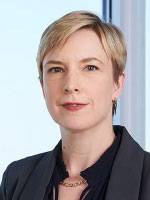 Cristina Carpani is a business requirement manager at Net Service SpA, and is responsible for the design of case management systems (CMS) for the courts and the legal sector. Cristina has been involved with the UPC IT project since its inception in 2015, and has been part of team at Net Service SpA that has developed the CMS for the Unified Patent Court. Since 2020, Cristina has also been supporting the team in charge of the realisation of the new CMS for the Court of Justice of the European Union. She is also active as User Experience designer for applications and systems.
Cristina Carpani is a business requirement manager at Net Service SpA, and is responsible for the design of case management systems (CMS) for the courts and the legal sector. Cristina has been involved with the UPC IT project since its inception in 2015, and has been part of team at Net Service SpA that has developed the CMS for the Unified Patent Court. Since 2020, Cristina has also been supporting the team in charge of the realisation of the new CMS for the Court of Justice of the European Union. She is also active as User Experience designer for applications and systems.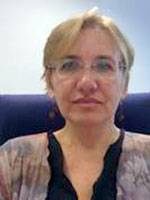 Simon Cohen is a London-based partner at Taylor Wessing and Head of the firm’s International Patents and UK Life Sciences groups. He specialises in contentious patent work in a variety of industries, but in particular for the life sciences sector. He also advises pharmaceutical clients on patent infringement and validity, launch strategy, preliminary injunction applications and pharmaceutical regulatory work. Simon represents clients in the UK Patents Court, the UK Court of Appeal and at the European Patent Office, and regularly co-operates with lawyers conducting parallel litigation in the USA and other European jurisdictions.
Simon Cohen is a London-based partner at Taylor Wessing and Head of the firm’s International Patents and UK Life Sciences groups. He specialises in contentious patent work in a variety of industries, but in particular for the life sciences sector. He also advises pharmaceutical clients on patent infringement and validity, launch strategy, preliminary injunction applications and pharmaceutical regulatory work. Simon represents clients in the UK Patents Court, the UK Court of Appeal and at the European Patent Office, and regularly co-operates with lawyers conducting parallel litigation in the USA and other European jurisdictions.
Amanda Ebbutt is a London-based partner at Taylor Wessing specialising in patents with expertise in the life sciences, healthcare and technology sectors. Amanda specialises in advising and representing companies in patent proceedings in the UK and coordinating multi-jurisdictional patent litigation. Amanda also advises clients on transactional and non-contentious matters, such as licence agreements, M&A and joint ventures.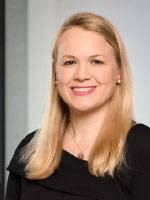
Professor Sir Christopher Floyd read Natural Sciences and Law at Trinity College, University of Cambridge. Between 1975 and 2007, he practised in intellectual property law at the bar, becoming Queen’s Counsel in 1992. Sir Christopher was appointed to the bench in 2007. In 2011, he was made judge in charge of the Patents Court and was also appointed as an external member of the Enlarged Board of Appeal of the European Patent Office. He became a Lord Justice of Appeal in 2013. On his retirement from the Court of Appeal in 2021, he became an Honorary Professor at UCL Faculty of Laws.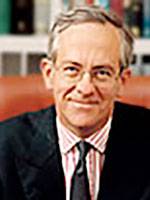
Professor Sir Robin Jacob practised at the Intellectual Property Bar from 1967, acting as Junior Counsel for the Comptroller of Patents and for Government departments in intellectual property between 1976 and 1981, when he was appointed Queen’s Counsel. He was appointed to the Bench in 1993 and then was appointed as Lord Justice of Appeal in 2003. Sir Robin formally retired from the Court of Appeal in 2011 to take up his current appointment as the Sir Hugh Laddie Professor of Intellectual Property Law at University College London and Director of UCL’s Institute of Brand and Innovation. He chaired the Advisory Panel on the Selection and Training of Judges for the UPC until the UK withdrew from the project.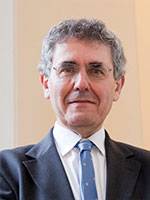
Wim Maas is a partner at Taylor Wessing’s Eindhoven office, where he heads the Intellectual Property and Disputes & investigations teams. While his practice covers all aspects of IP law, Wim specialises in patent litigation cases in technical areas including technology, engineering and life sciences. Wim works with national and international clients facing patent litigation in the Netherlands and other jurisdictions. Professor Dr Peter Meier-Beck studied law at the Universities of Bonn and Freiburg. He then worked as a lawyer in Düsseldorf, having completed his legal clerkship there. Between 1985 and 2000, Peter Meier-Beck served as a judge at the Regional Court of Düsseldorf when he then began his service as a judge at the German Federal Court of Justice (Bundesgerichtshof – BGH). He was Presiding Judge of the Patent Division for 10 years before moving to preside over the Competition Law Senate in 2019. He was appointed as an Honorary Professor at UCL Faculty of Laws, following his retirement from the Bundesgerichtshof at the end of 2021. Professor Meier-Beck is also an Honorary Professor at the University of Düsseldorf, where he has taught IP law for many years.
Professor Dr Peter Meier-Beck studied law at the Universities of Bonn and Freiburg. He then worked as a lawyer in Düsseldorf, having completed his legal clerkship there. Between 1985 and 2000, Peter Meier-Beck served as a judge at the Regional Court of Düsseldorf when he then began his service as a judge at the German Federal Court of Justice (Bundesgerichtshof – BGH). He was Presiding Judge of the Patent Division for 10 years before moving to preside over the Competition Law Senate in 2019. He was appointed as an Honorary Professor at UCL Faculty of Laws, following his retirement from the Bundesgerichtshof at the end of 2021. Professor Meier-Beck is also an Honorary Professor at the University of Düsseldorf, where he has taught IP law for many years.
Gwilym Roberts studied physics at the University of Oxford before qualifying as a UK and European Patent Attorney. He is Chair of Kilburn & Strode LLP, Honorary Secretary of the UK Chartered Institute of Patent Attorneys, President of the British Group of UNION (the Union of European Patent Practitioners) and a Visiting Professor at Queen Mary University of London. He is a member of the Standing Advisory Committee to the European Patent Office Working Group on Guidelines, and has has authored several books including International Patent Litigation: Developing an Effective Strategy (2/e, Globe Law and Business, 2018). Jan Phillip Rektorschek is a partner at Taylor Wessings Munich office, handling patent litigation for national and international companies in a number of fields, but particularly focussing on the fields of robotics, industry 4.0, Internet of Thing and artificial intelligence. Phillip is also involved in IP-related arbitration proceedings as well as in drafting and negotiating license and R&D agreements.
Jan Phillip Rektorschek is a partner at Taylor Wessings Munich office, handling patent litigation for national and international companies in a number of fields, but particularly focussing on the fields of robotics, industry 4.0, Internet of Thing and artificial intelligence. Phillip is also involved in IP-related arbitration proceedings as well as in drafting and negotiating license and R&D agreements.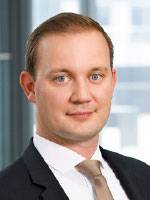 Nigel Stoate is a London-based partner at Taylor Wessing and he head of the firm’s UK patents team. Nigel specialises in patent litigation and advice with a focus on the medical devices, pharmaceutical, telecommunications, chemical, and engineering industries. He has acted for clients in high profile patent cases in the English High Court and Court of Appeal and regularly co-ordinates multi-jurisdictional cases with counsel across Europe, the US, and Asia.
Nigel Stoate is a London-based partner at Taylor Wessing and he head of the firm’s UK patents team. Nigel specialises in patent litigation and advice with a focus on the medical devices, pharmaceutical, telecommunications, chemical, and engineering industries. He has acted for clients in high profile patent cases in the English High Court and Court of Appeal and regularly co-ordinates multi-jurisdictional cases with counsel across Europe, the US, and Asia.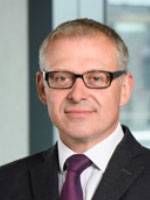
- Queries
If you have any queries about this event please email lisa.penfold@ucl.ac.uk
 Close
Close

